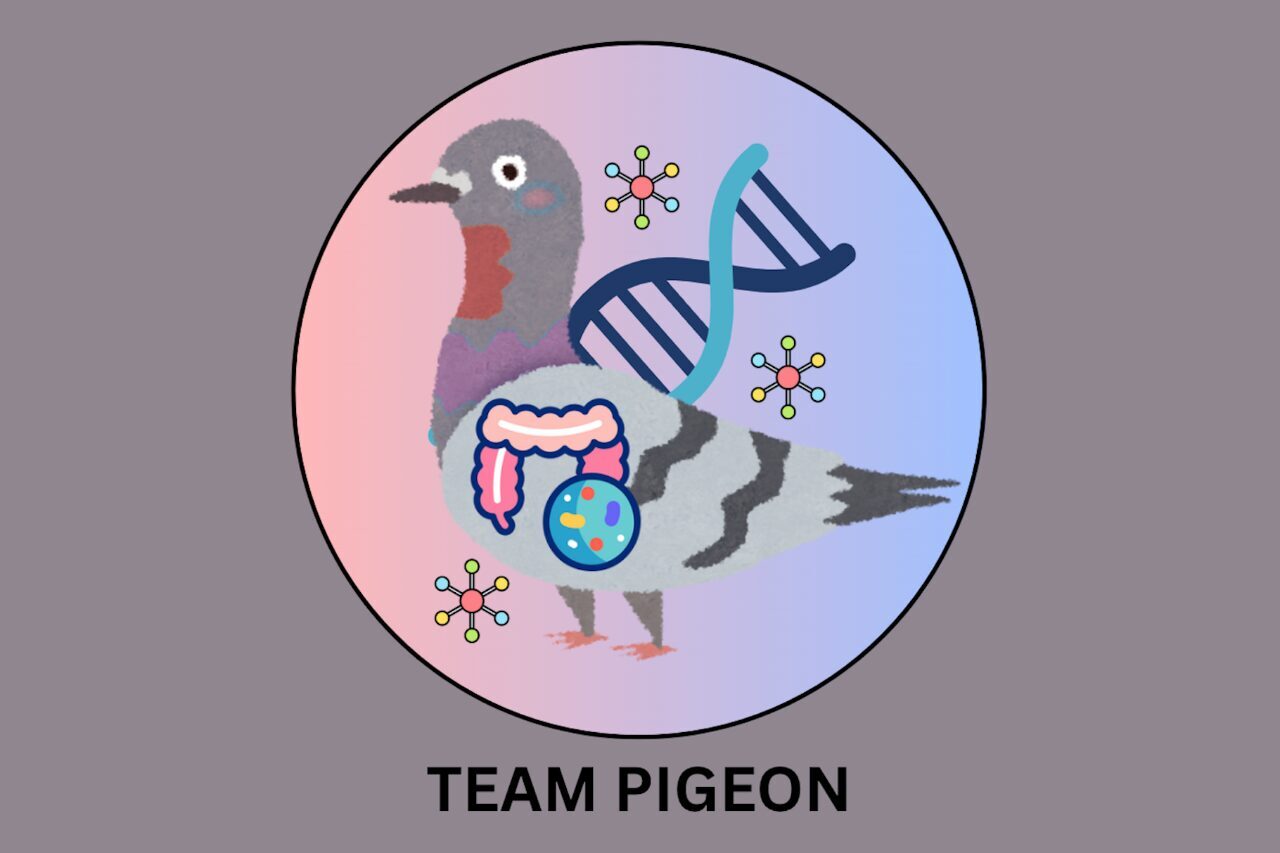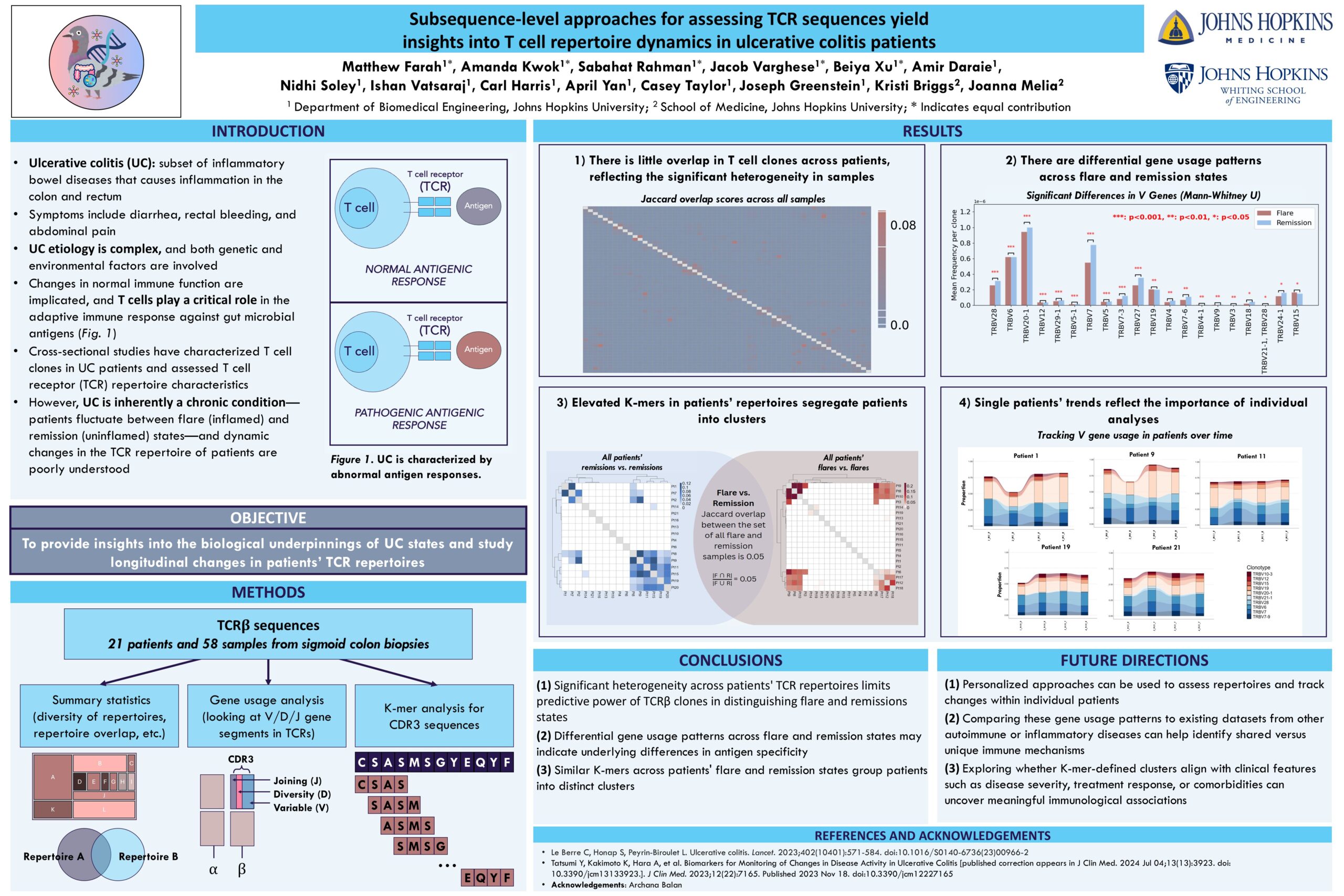
Create
Design Project Gallery
Subsequence-level approaches for assessing TCR sequences yield insights into T cell repertoire dynamics in ulcerative colitis patients
- Program: Biomedical Engineering
- Course: EN.580.480 Precision Care Medicine
- Year: 2025
Project Description:
Ulcerative colitis (UC) is a chronic autoimmune condition characterized by inflammation in the colon and rectum. Though specific etiological factors underlying UC are unclear, T cells play a critical role in the immune response against gut microbial antigens. Therefore, prior cross-sectional studies have investigated T cell receptor (TCR) repertoires in UC patients. However, patients fluctuate between flare (inflamed) and remission (uninflamed) states, and dynamic changes in TCR repertoires are poorly understood. We leverage TCR repertoires collected from sigmoid colon biopsies to investigate TCR characteristics across disease states and over time in our cohort of 21 patients. Although the vast diversity of TCRs limits the shared number of sequences between patients, we find differential gene usage patterns and shared elevated K-mers in TCR sequences across flare and remission states. Individual patients’ repertoires also change dramatically over time, further highlighting the need for longitudinal TCR repertoire analysis in chronic conditions like UC.
Project Photo:
Our group is playfully called Team Pigeon, and we’ve been studying ulcerative colitis—this is reflected in our photo, where we focus on the colon of the pigeon. By harnessing DNA sequences of T cells, we aspire to learn more about the different states and longitudinal trends in UC patients.


